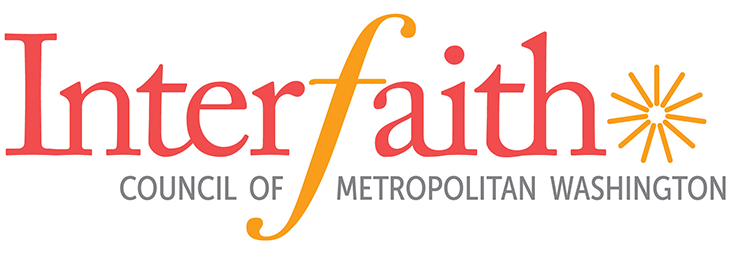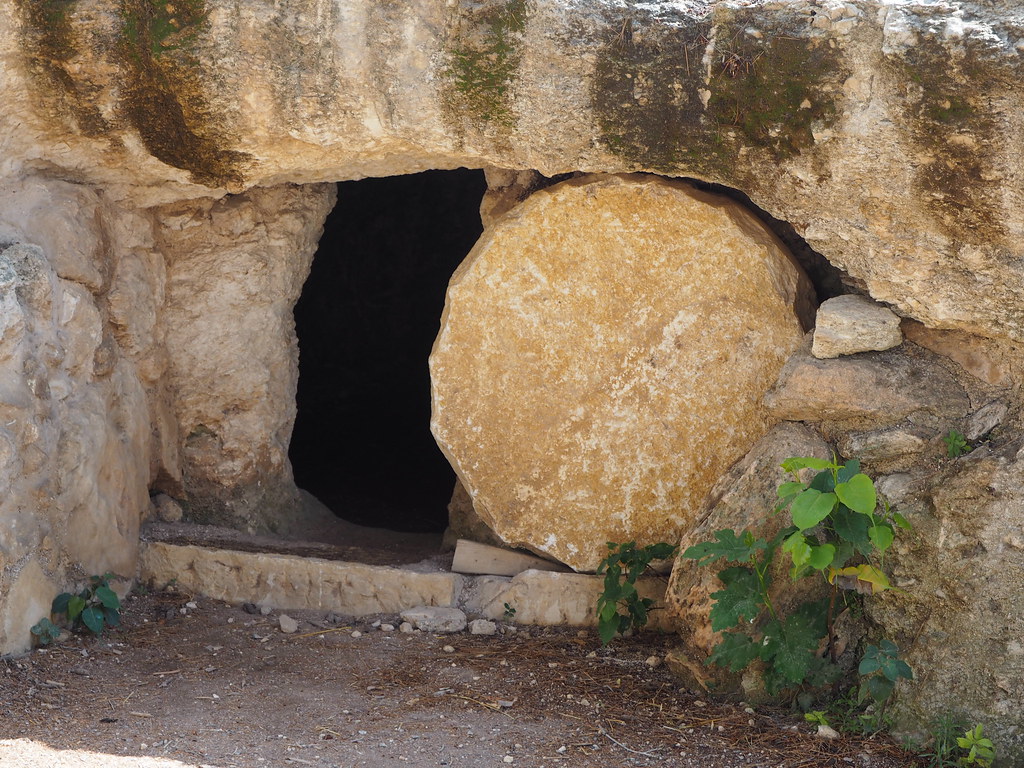It is an odd season for religious ritual. We can’t gather in person, we’re having to combine traditional practices with 21st century technology, and we’re scrambling to make meaning from the present moment in the context of our ancient stories. As a progressive Christian pastor, my challenge has been Easter, so this is where I’ll focus.
Indulge me for a moment and imagine. Just imagine you’re one of the women who came to the tomb of Jesus in the dark hour before dawn. He’d been crucified on Friday, but you couldn’t properly prepare him for burial, because Shabbat was about to begin. So now you’ve returned to wrap and anoint him. Imagine what that must have been like— to have watched your dear friend, rabbi, teacher, lord be executed, then spend a day and a half in agony knowing he was dead, only to go tend him for the last time and find his tomb empty, the body gone!
Imagine. Your loved one is in the ICU, and you can’t go to him. She’s in agony and you can’t help, touch, or reassure her. Then the worst happens. And you can’t be with the body or engage in any of the rituals that help people stand upright when a loved one dies. This is what the women experienced: loss, grief, absence. And then, in Mark’s gospel, a strange figure dressed in white appears at the tomb and tells them not to worry, Jesus has returned to Nazareth. What?!
Fear, despair, grief, anger: it’s what separates the Christian Holy Week from Easter. Specifically, it’s the fear, despair, grief, and anger of Thursday night in the garden through predawn Sunday at the tomb that distinguish those days from Easter Day. In order for the women to make any movement toward joy, they had to move through and beyond fear. And this is our challenge as well. How do we move from the “Lentiest Lent that ever was” to the joyfully sung Alleluias of Easter?
In the Christian tradition, we say (quoting Jesus in John’s gospel) “perfect love casts out fear.” And, while I’m not sure about “perfect,” I’m certain love and fear are incompatible. Because fear is all about needing, but not having, control. We fear what we don’t understand and aren’t able to define. And, since we don’t like this feeling, we spend a lot of time pretending. We pretend we understand, or we narrow our scope and engage only with things, people, or ideas we know pretty well and pretend we can define. This approach works pretty well in regular times (though not really), but then along comes a global pandemic, and the jig is up. It becomes almost impossible to pretend we’re in control, so fear and uncertainty creep in.
Indulge me for a moment and reflect on whatever is frightening or unnerving you right now: When is this lockdown going to end? Will my job survive? Will my child learn enough to move to the next grade? Will my elderly parents be okay? Will I be able to pay next month’s rent? Will my disabled relative receive the care she needs? Will I get Covid if I go to the grocery store? Will the stock market rebound? Will our lives ever return to “normal” again?
As you read these questions, do you feel your body tensing? Do you have an urge to know the answers, control the situation, make it go away? If you’re human, you likely do. I get a murky, stuck feeling with a bit of anxiety thrown in.
But we can choose a different response. Right now, no matter our circumstances, regardless of pandemic. In the history of humankind, there’s never been a perfect Easter. Meaning, there’s never been a perfect time to let go of fear and expose our underbellies to love. The world will always offer us reasons to hold on, tense up, and try to maintain an illusion of control. And our human tendency will be to grasp onto this illusion. But the Easter truth is G-d is bigger than that. G-d is Love. And true Love always moves us away from fear, from being stuck to letting go, from death to new life. So, we can take a break from the impossible task of pretending we know it all and admit we don’t. We can cease thinking it’s our job to figure everything out and acknowledge we’re just human in an overwhelming world. We can desist from holding on so tight to our ideas of how the world should be and let go, let G-d, let Love.
I don’t know what the future will bring. I don’t understand why all of this is happening. I’m not even sure what my place is within it. For me, in part, it’s still the dark before dawn, and I’m standing in front of an empty tomb wondering what’s gone wrong. But I know that in the east the sun will rise. And the sky will be streaked with pink and orange and yellow and purple-blue. A new day will dawn as inexorably as the old one will pass. And, as I wait, I’ll Love. Which is worth its own joyful Alleluia. To paraphrase an old Christian hymn, “Since Love is Lord of heaven and earth, I choose to keep on singing.”
–Rev. Ellen Jennings, Cleveland Park Congregational UCC

